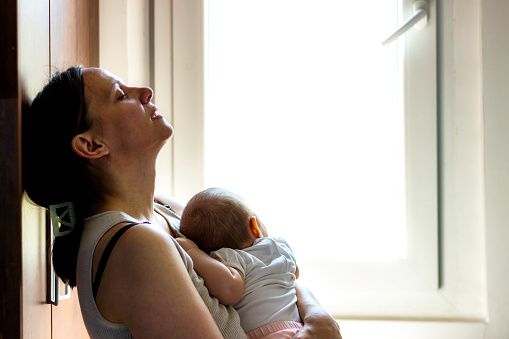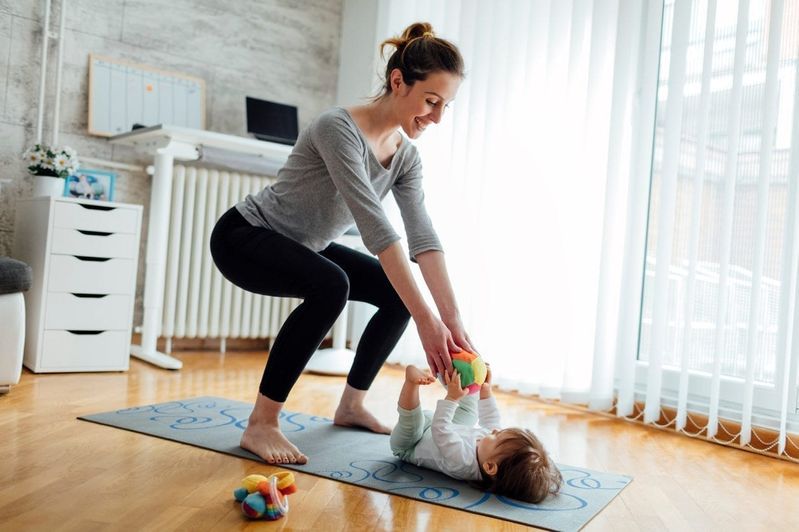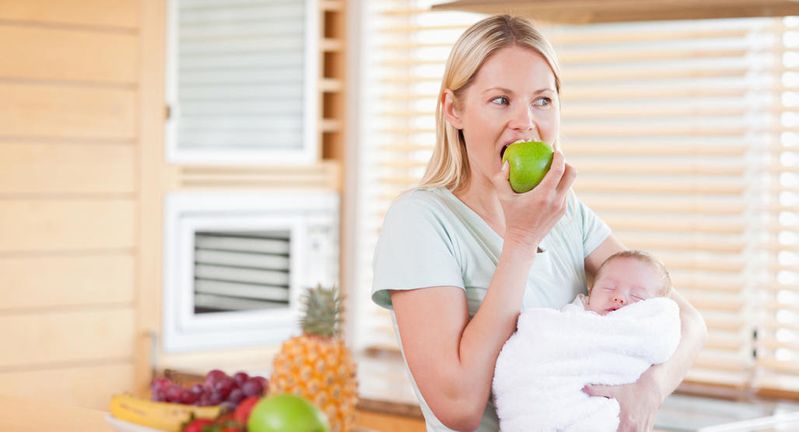Publication date March 22, 2022
10 Best Ways To Cope With Postpartum Blues
From delight and excitement to anxiety and dread, becoming a parent brings on a wide range of emotions. While it can be one of the happiest occasions for new parents, it can also be accompanied by postpartum depression for the new mother.
Following a diagnosis of postpartum depression, there are numerous things you may do to improve your well-being.
Around one in every seven women suffers from postpartum depression. It can be harmful to both the mother and the child's health, but 1 in 5 women keep silent about their symptoms and go untreated as a result.
Postpartum depression, unlike the baby blues, rarely goes away on its own. The illness can develop days or even months after your kid is born, and it can linger for weeks or months without therapy.
Postpartum depression is a psychological condition that can be treated. It can be efficiently managed, and you will feel better as a result. But, first and foremost, you must contact your healthcare professional and request assistance.
You are not to blame for being depressed, and being unhappy does not imply that you are a lousy parent.
Here are some tips that can help you deal with postpartum depression or anxiety.
Establish a Strong Bond With Your Child

Source: Sweet Captcha
Recommended articles
The stable attachment that develops between parents and children is known as emotional bonding. Bonding successfully allows a child to develop fully, and influence how they interact and build relationships throughout their lives.
When you pay attention to and respond to your child's demands or emotional cues, such as picking them up, soothing them, or consoling them when they cry, you develop a strong bond. Being that dependable source of comfort allows your child to learn to control their own emotions and behaviors, which aids in their cognitive development.
Make Self-Care a Priority

Source: Beachbody on Demand
When you're caring for a baby, this may seem entirely unrealistic! Feeling overwhelmed is natural if you are often lost in a pile of diapers and burp cloths.
It is not necessary to spend a lot of money on yourself. Perhaps it is simply allowing the dishes to pile up in the sink while you read the next chapter of your favorite book. Perhaps that means working up a sweat while your baby sleeps. Take a few minutes out of your day for yourself to make self-care a priority.
Don’t Shy Away From Asking For Help

Source: Unsplash
Many new mothers believe that if they don't "do it all," they aren't being good mothers. That, however, is not the case. You just cannot handle everything, and asking for help will not be seen as a betrayal of yourself or your child. Yes, learning to ask for help may be necessary—after all, not everyone understands what will help you the most in any given situation.
It also means accepting that there are many people in your life who are willing to help you with things like dropping off dinner or holding your baby while you nap—you simply have to be willing to accept their support.
Talking to your mental health practitioner (or seeking a referral from your primary care physician if you don't already have one) can also help. Regular talk therapy has been found to have a wide range of emotional advantages.
Allow Yourself to Feel The Blues

Source: Unsplash
It's easy to brush your sentiments aside or keep them bottled up when you're busy caring for a newborn and are "on" all the time. That just makes dealing with it even harder. In order to move past painful feelings, you must be able to feel them.
Of course, experiencing everything all at once might be exhausting! It can be beneficial to schedule times throughout your day where you sit down, close your eyes, and simply feel.
You can add some deep breathing to this, or take a few seconds to write down or communicate your sentiments with someone you care about. Make time for this in any case. You've earned it.
Get Some Exercise Whenever You Can

Source: Baby Chick
Walking with a baby in a stroller, in particular, can be a convenient way to get some exercise and fresh air. And exercising releases feel-good hormones. Walking was found to be a statistically effective approach to relieve depression.
Don't have time for a long workout? Try exercising for 10 minutes several times throughout the day.
Eat a Well-balanced Diet

Source: BabyCenter
PPD cannot be cured by healthy nutrition alone. On the other hand, developing a practice of eating nutritious foods can help you feel better and supply your body with the nutrition it needs. Plan your meals for the week ahead of time on the weekend, and even prepare healthy snacks like diced veggies and peanut butter.
Take a Look At How You're Breastfeeding

Source: Cedars-Sinai
Breastfeeding may lower your risk of developing PPD. This ostensible protection could last until the fourth month following your baby’s delivery. Continue breastfeeding as long as your child requires it.
However, some women can experience depression even while breastfeeding. Dysmorphic Milk Ejection Reflex, or D-MER, can make you feel unhappy, agitated, or angry for several minutes after your milk has stopped flowing.
Finally, select the feeding method that feels most natural to you.
Do Not Isolate Yourself

Source: Kaiser Health News
When you have a baby, the days may blur together, leaving you feeling lonely. Talking about your thoughts with others can help you feel better. After speaking with experienced mothers who had previously suffered PPD on a regular basis, researchers determined that new mothers had reduced levels of depression. These findings persisted for eight weeks following delivery.
Despite the fact that the peer mothers in this study were given particular training on how to provide phone support, the importance of social interaction cannot be overstated. Make an effort to talk to other adults and moms for support.
Consult Your Physician

Source: Lightfield Studios
Although many mothers experience the "baby blues" in the weeks following birth, PPD is characterized by feelings of sadness and agitation that are deeper and persist longer. Without medical help, these symptoms can worsen and turn into chronic depression.
If you experience feelings of depression after giving birth, it's a good idea to see your doctor, especially if they don't go away after a few weeks or worsen over time. Despite the necessity of treatment, only about 15% of women seek treatment for their symptoms. Your doctor can assist you in getting all the help you require.
Put Together a Support Team

Source: Inc. Magazine
Loneliness, according to the study, generates significant emotions of isolation, alienation from others, and a sense of not belonging. High blood pressure, sleep issues, decreased immunity, and heart disease risk factors have all been related to loneliness.
Humans are social beings who feel better when interacting with a comfortable group of friends and family. Positive social connections and emotional support may help you cope with obstacles and reduce stress.
Look for other women with children the same age as yours through groups, classes, or apps to share your experiences. Receiving social and emotional support from others can boost your self-esteem and independence, helping you to deal with problems more effectively on your own.
Please let us know your tips for dealing with postpartum depression in the comments below.




